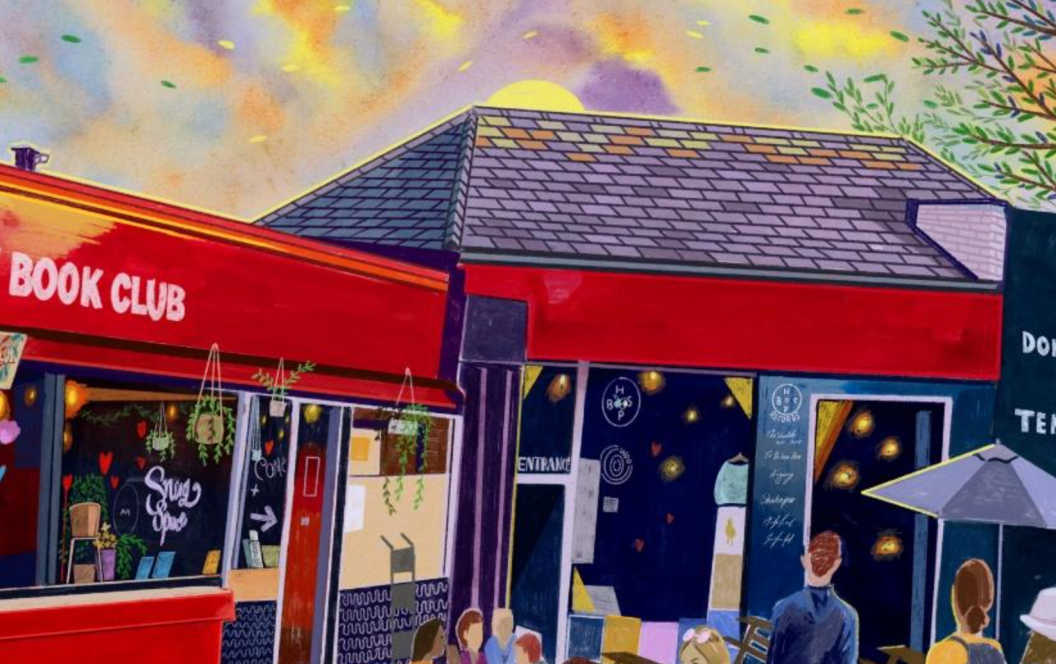From the outside, creative sectors are lauded for celebrating inclusion and diversity. Does reality really reflect this or is it all platitudes and posturing? In this article, I hope to find out.
Where’s the proof
In my experience, the creative industries have been sustaining champions for innovation and diversity but that isn’t my whole story and according to research conducted by the Sutton Trust, many creatives are in the same boat. The Sutton Trust has found glaring overrepresentation in the arts for those from upper-middle-class backgrounds. Even though approximately 7% of people educated in the UK attend private fee-paying schools, a stunning 43% of Britain’s best-selling classical musicians and 35% of Bafta-nominated actors are alumni of private schools. By championing social mobility from birth to the workplace, Sutton Trust has renewed a conversation at the forefront of the Northern Design Festival’s ethos.
Unfortunately, the disparity the trust has highlighted is reflected in other areas of the creative industries.
Channel 4 Panel
In addition to Sutton, actor Samira Ahmed said she had a “traumatic” drama school experience in a 2024 Channel 4 panel featuring three creatives mentored by Arts Emergency
Continuing, she stated that, “I’ve had to debate whether my accessibility rights are important.” She went on to explain that she felt different from many of her peers and that instead of inspiring her, this experience only reaffirmed the boundaries between herself and her dreams.
“Everyone there was predominantly white, middle class, posh, and it made me realise [that] to get into the industry, you need connections.”
Performance Designer Talitha Bella Sewell echoed similar sentiments during this panel. Even though she feels like her “diverse ethnic background” and “disability” is something the industry cannot ignore, she has observed a stiff upper lip mentality when it comes to class differences.
“…with [different] economic backgrounds, it’s like oh they’ll cope, they’ll manage.”
Actor/ Director Ella Fraser has also dealt with dismissive attitudes around class. Despite being from Wigan, “which is one of the priorities for levelling up”, she believes “there’s not enough money going around and it can feel like a box tick, specifically by the government in general.”
Ella has been told to ‘tone down’ her northern accent.
“I’ve been in an audition, and they said, ‘Where are you from?’ And I said ‘Wigan’ and everyone laughed.”
Unfortunately, not being taken seriously is a throughline in the experiences of many northerners aspiring to succeed in the creative field. Speaking with our Writer’s Team lead Mathew. People have assumed he is “uneducated” due to “Hull accent”.
“The [starkest memory] of this was a university interview in 2024, when I said I was there for information surrounding their PhD course, I was spoken to and belittled the entire time about how hard it is, and do I even have an MA because I’ll need one of those. Only when I said I had graduated with a distinction at a higher-ranking university did they care about the idea of entertaining me as a student.”
Pop music reflecting society
Even though moving towards true equality in the creative industries is an uphill battle, there is still hope. According to the Sutton Trust, pop stars appear to reflect the educational backgrounds of the UK better than other fields. Only 8% of popular musical stars were privately educated with 20% being university-educated, both close to the national averages.
Jade Thirwall, mononymously, known as Jade, is an example of the music industry’s changing tide. Hailing from a Northern background and being of mixed heritage, she has made a splash as a solo artist, recently winning Best Pop Act at this year’s Brits.
How do we close the class gap?
To continue to close the class gap, Sutton Trust has called for an “arts premium” so schools could pay for arts opportunities such as music lessons and ensure that conservatoires and creative arts institutions that received state funding were banned from charging for auditions.
Additional suggestions include making socio-economic inclusion a condition of employers receiving arts funding, and the wholesale ban of unpaid internships lasting more than four weeks. Moreover, they advocate for the quality of creative degree programmes to be measured on more than just graduate earnings due to the prevalence of freelance work and the aforementioned unpaid internships.
Sutton Trust is also partnering with the British Screen Forum, which aims to address socioeconomic diversity through targeted skills and career initiatives.
Nick Harrison, the chief executive of the trust, said no young person “should be held back from reaching their full potential, or from pursuing their interests and dream career, due to their socioeconomic background”.
He said it was “essential that action is taken to ensure access to high-quality creative education in schools and to tackle financial barriers to accessing creative courses and workplace opportunities”.
Our mission
Over at the Northern Design Festival, we share a similar mission. Unifying community and opportunity for creatives in the North of England. Mainly student-led, we experienced first-hand the lack of creative opportunities in the North and wanted to make a change. By providing free and accessible opportunities like design workshops, talks and so much more, we are allowing diverse communities to access the industry and emerge as successful creatives.
With the theme of this year’s event being Transparency, organisations like ours are so important now more than ever. Through hard work, support and a true, unwavering commitment to inclusivity, we can make good on the creative industries’ promise of diversity.
Join us as we democratise innovation.




